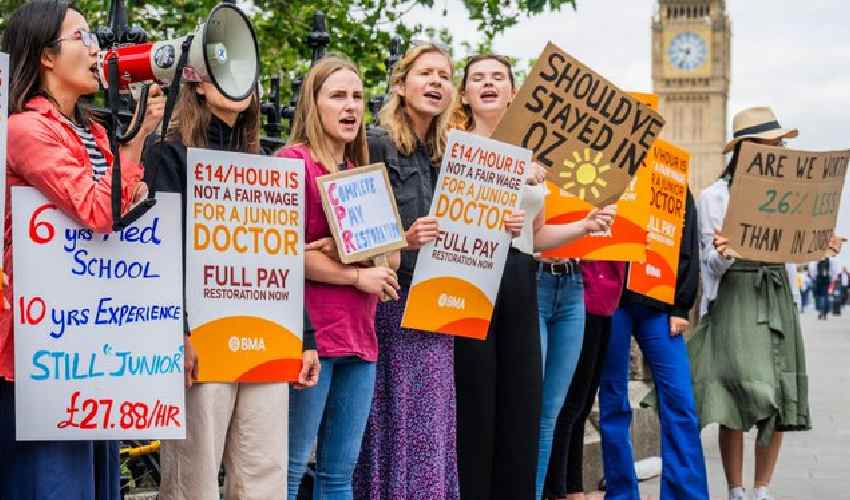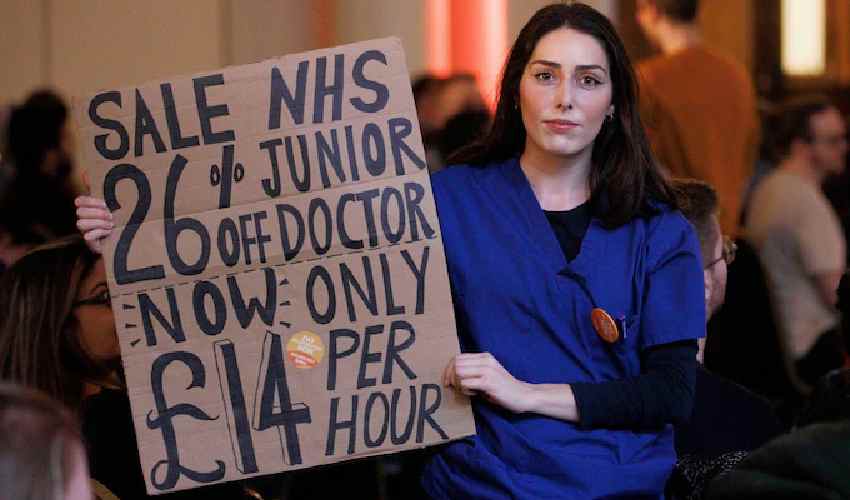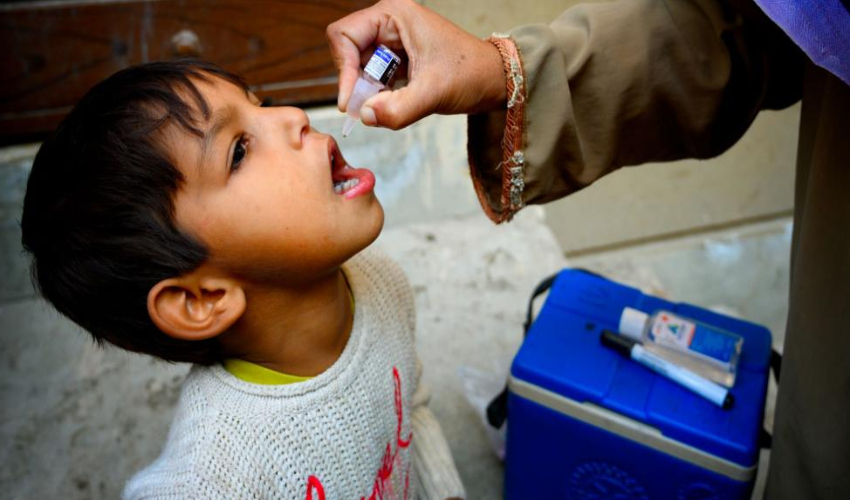The National Health Services (NHS) authorities fear patient safety possibly be compromised during junior doctors strikes, starting from Wednesday, if medics do not return to emergency calls as part of agreement to abandon picket lines during the winter crisis.
Hospital bosses can ask the British Medical Association (BMA) to allow junior doctors to return to work to help if an emergency arises during their six-day strike starting on Wednesday.
But there is concern among health trust leaders that the doctors’ union could reject such “recall requests” – or take worryingly long to consider them – despite “highly vulnerable” hospitals having too few staff on duty to cope with a surge in patient numbers.
As per the Denis Campbell report in The Guardian, a spike in cases of flu, Covid and norovirus has left the NHS under intensifying strain in the first week of the new year, a period in which its winter crisis often bites.
Matthew Taylor, chief executive of the NHS Confederation, the membership organisation for the healthcare system in England, Wales and Northern Ireland, said many trusts would be in a precarious position because of the strike.
“Many trusts will have thin rotas and will be in a highly vulnerable position,” he said. “A lot of the NHS will be skating on very thin ice because this is one of the most demanding weeks of the year, if not the most demanding.”
NHS doctors junior strike dates
Junior doctors are on a six-day strike from 7am Wednesday (GMT). The strike is being observed on the eve of the 144-hour strike – the longest in NHS history.
British Medical Association members will walk out for 144 hours in a row from 07:00 GMT on 3 January until 07:00 on 9 January across all of England.
The BMA has stressed that, like NHS England, it is fully committed to patient safety.

Could be toughest strike since 1948, admits NHS executive
The NHS in England could be facing one of its most difficult starts to the year since it was founded in 1948, one of its most senior executives has said, reported British Broadcasting Corporation BBC).
Patient advisory amid 144-hour strike
Patients are being urged to continue to call 999 and use A&E in life-threatening emergencies, with cover provided by more senior consultant doctors on strike days.
Strike call off efforts fade away
A spokesman for the Department of Health and Social Care said: "We urge the BMA junior doctors committee to call off their strikes and come back to the negotiating table so we can find a fair and reasonable solution, and so we can all get back to focusing on patients and their care.
"We know how distressing it is for patients who have had appointments and procedures cancelled, and we have provided £800m to ensure patients continue to receive the highest quality care this winter and ease pressure on hospitals impacted by industrial action."

Timeline of dispute between NHS, BMA
It started in 2015 October 12 when Junior doctors demanded "concrete assurances" from the then Health Secretary Jeremy Hunt, saying the "threat" that a contract would be imposed upon them must be removed. And on October 17, Up to 20,000 people take part in a protest in London over the Government's plans to impose a new contract for doctors. Under the plans, the contract will reclassify doctors' normal working week to include Saturdays and late evening working, with critics arguing it could lead to pay cuts of up to 30%.
Appointments cancelled
"There's likely to be many thousands of appointments cancelled." NHS Medical Director Prof Sir Stephen Powis warns NHS England is facing one of its most difficult starts to a year since it was founded, ahead of a six-day strike by junior doctors.



























